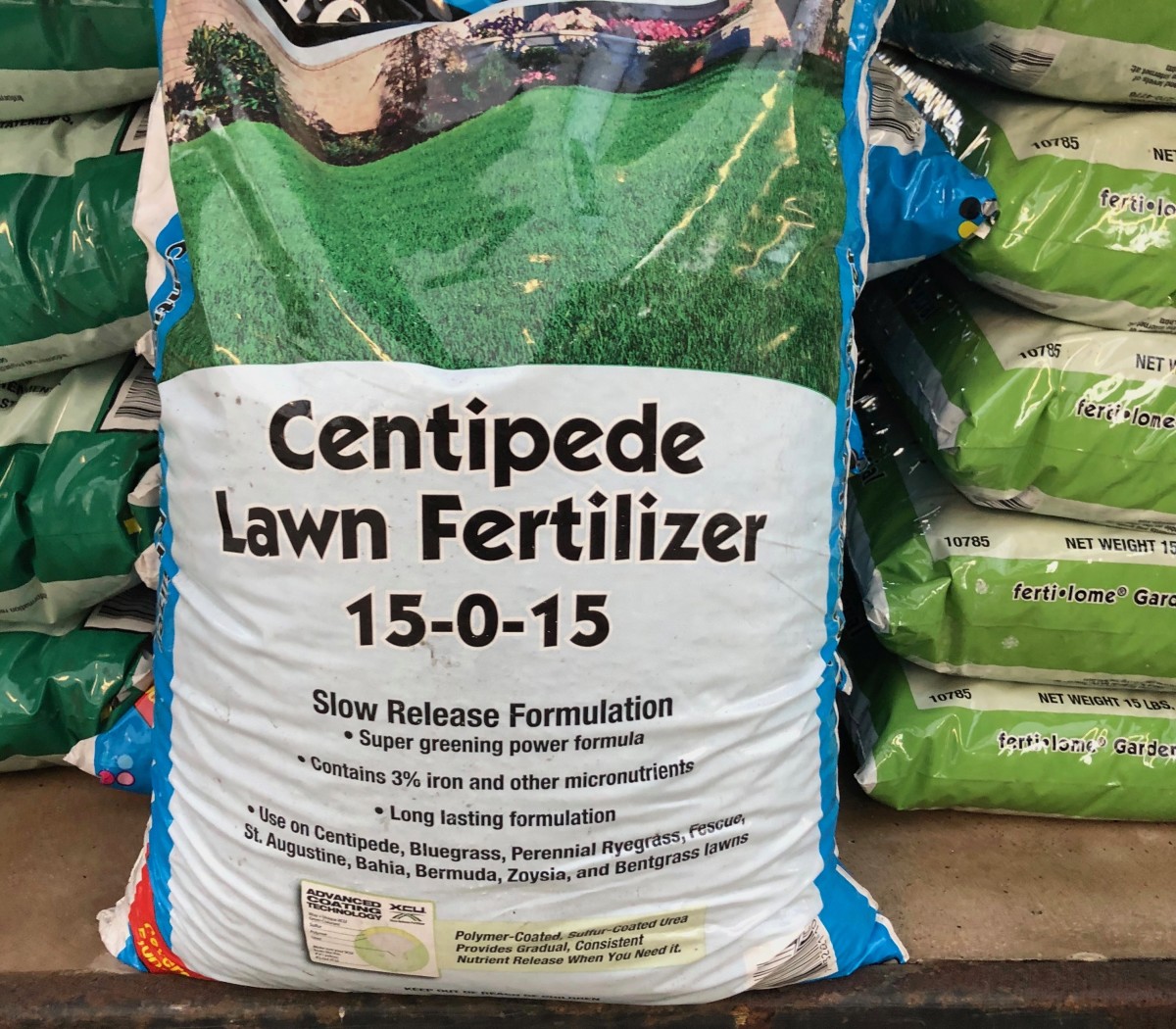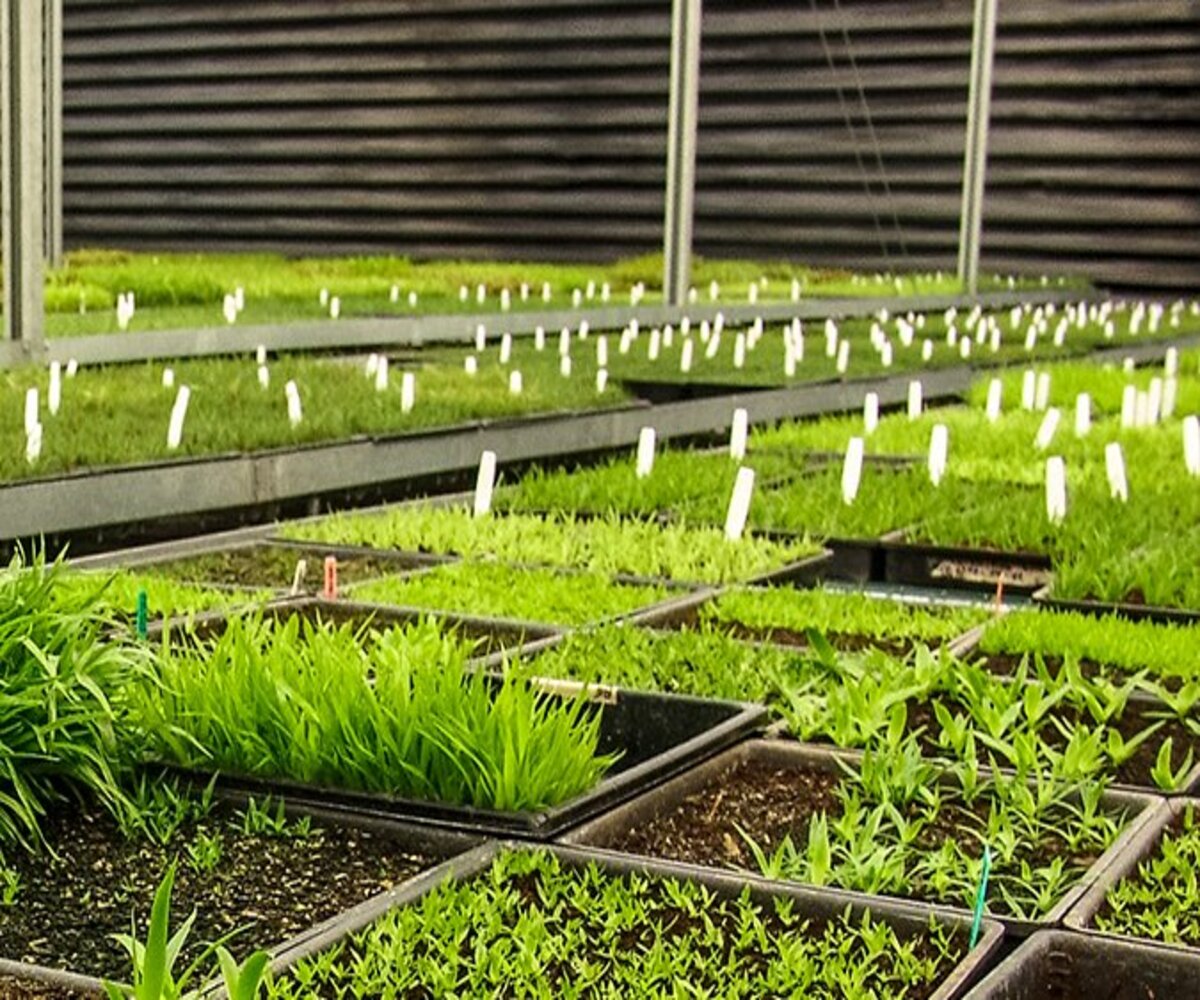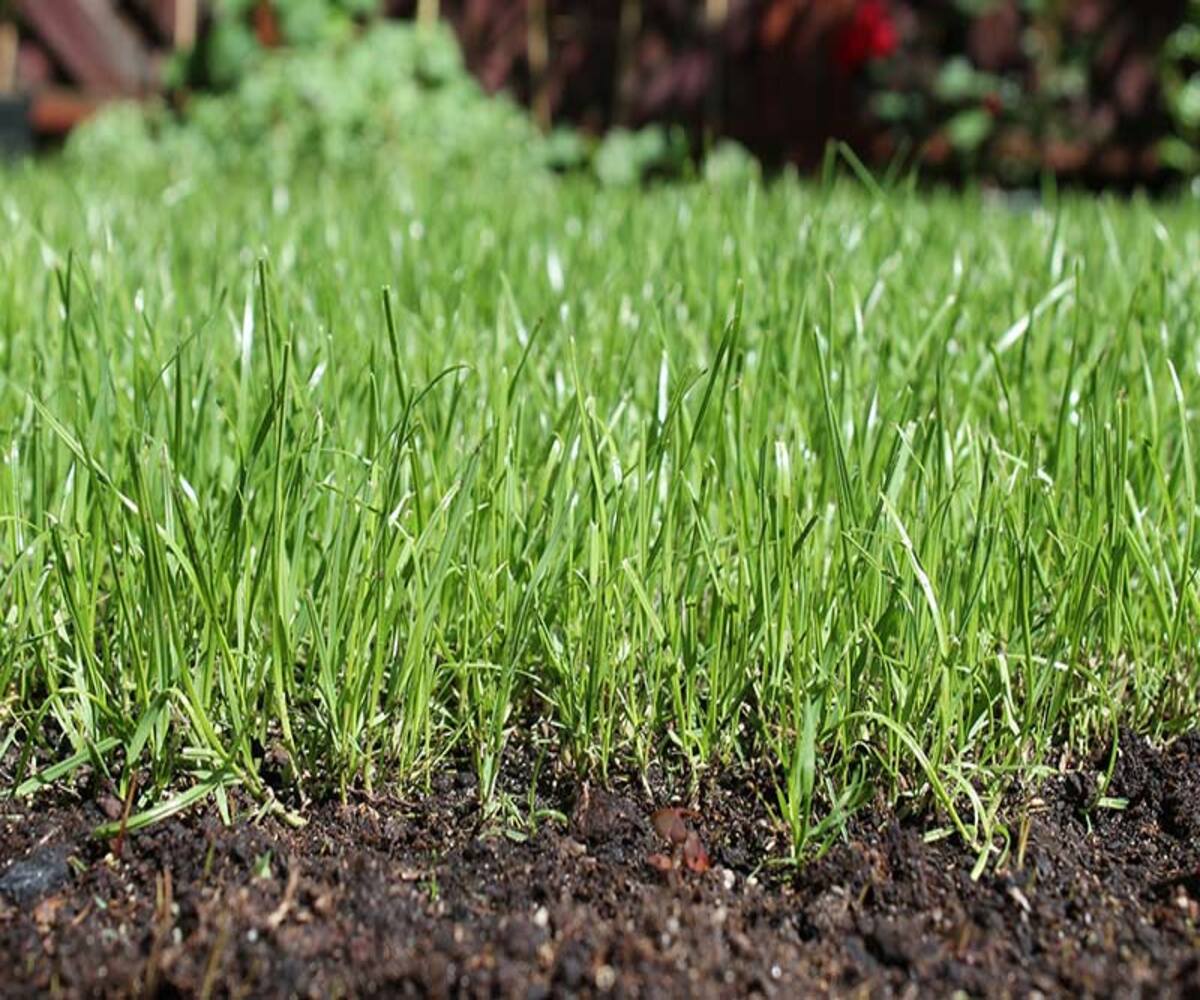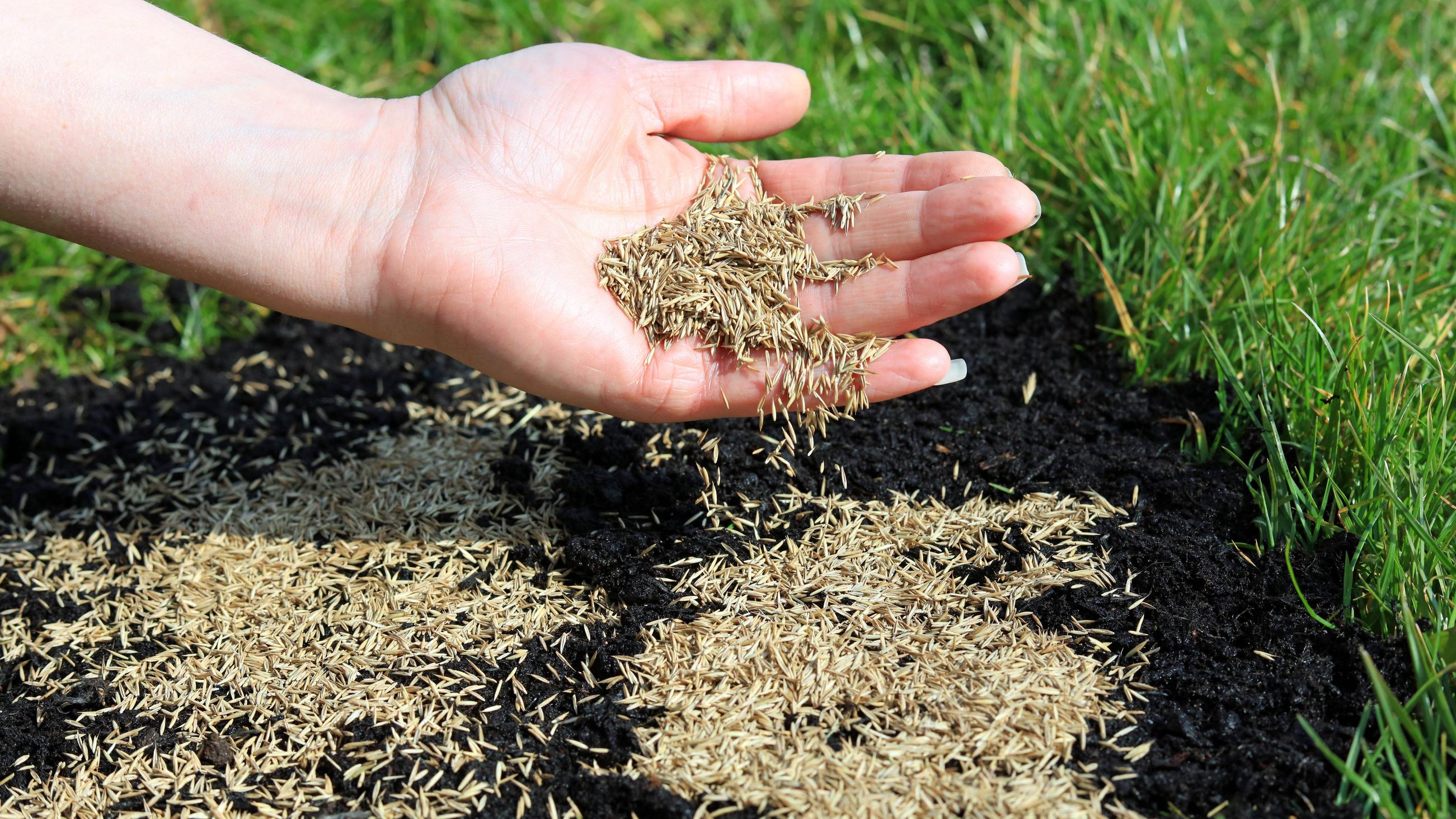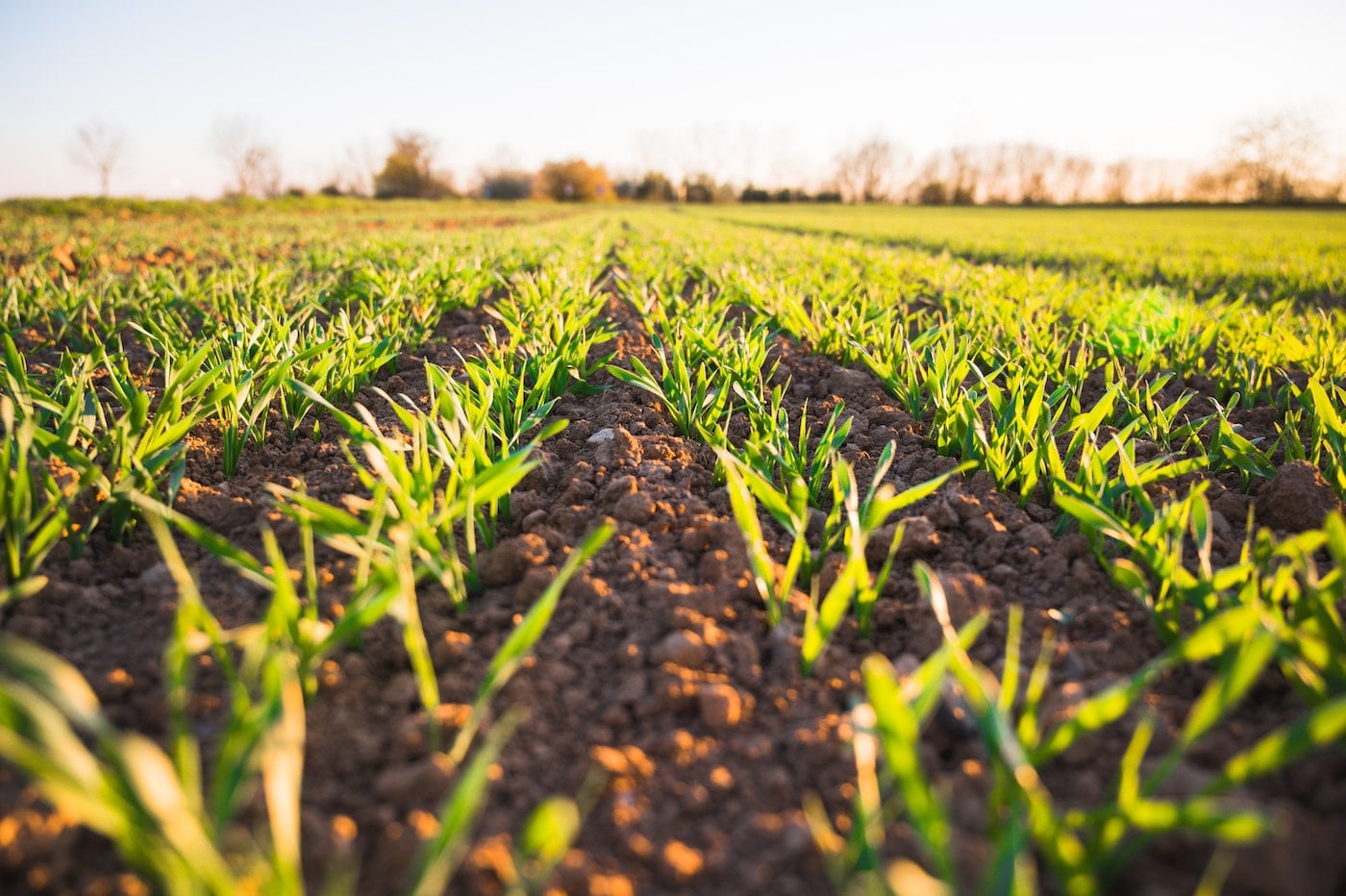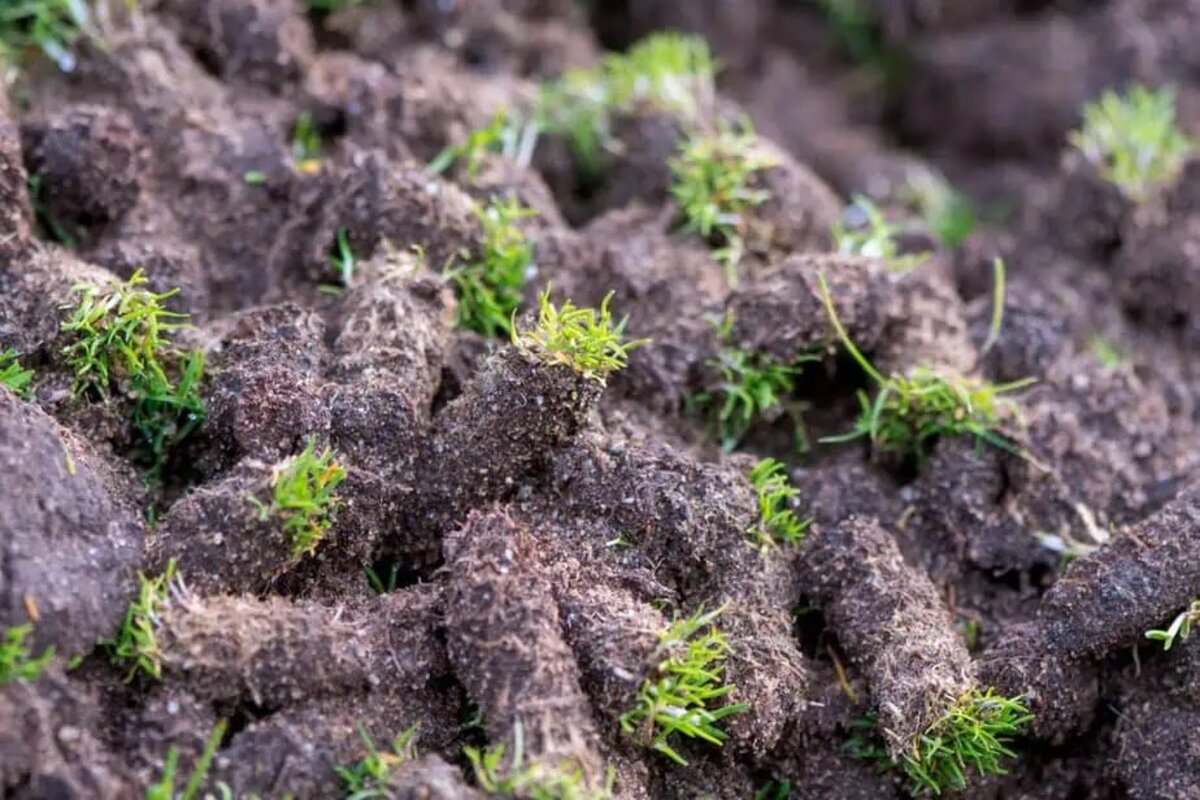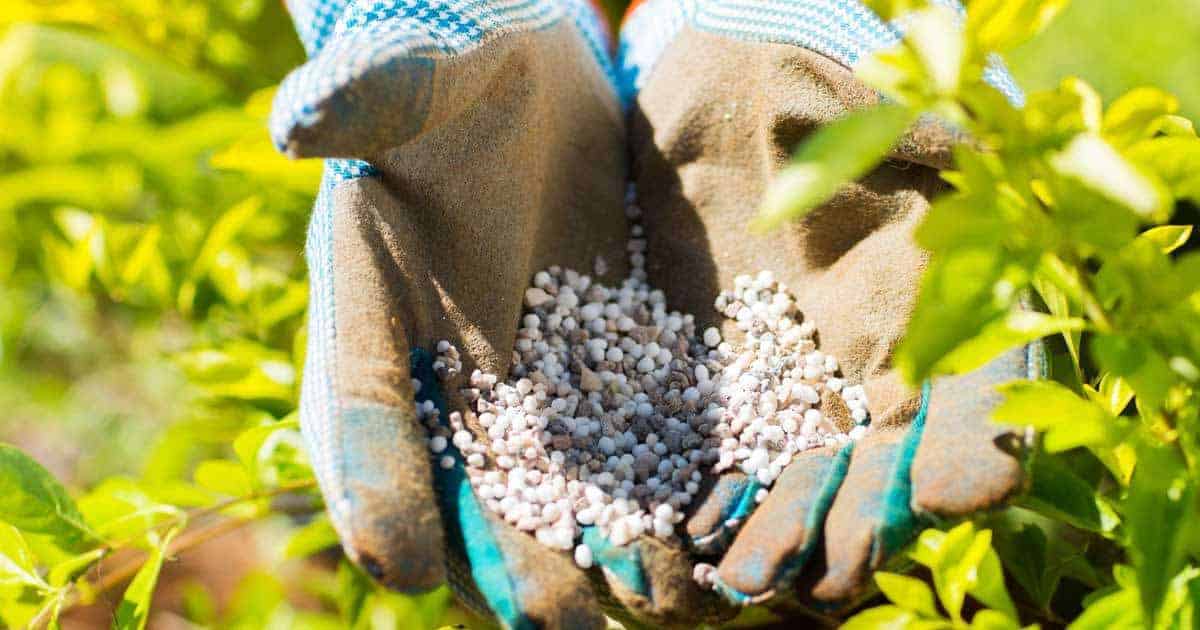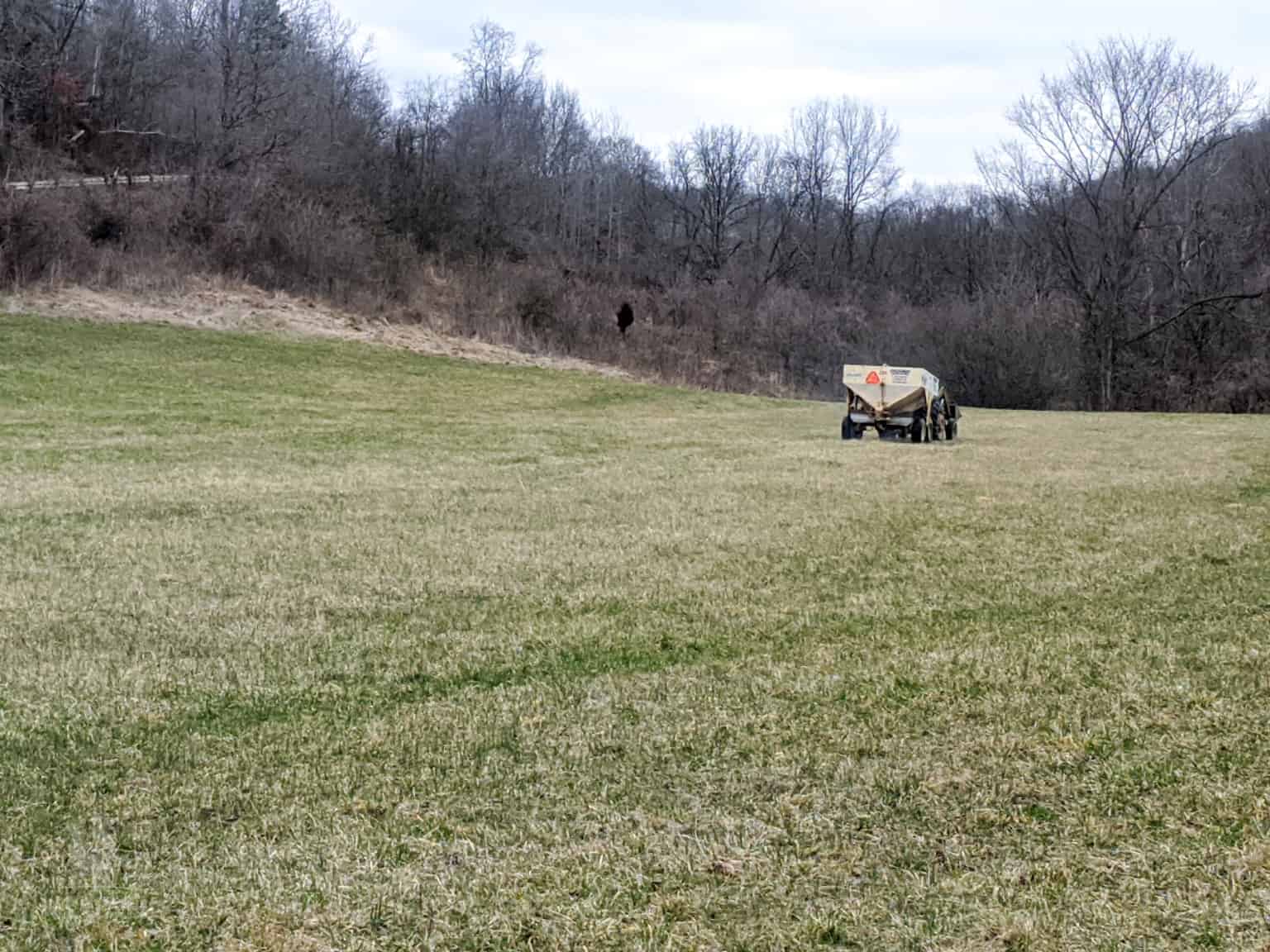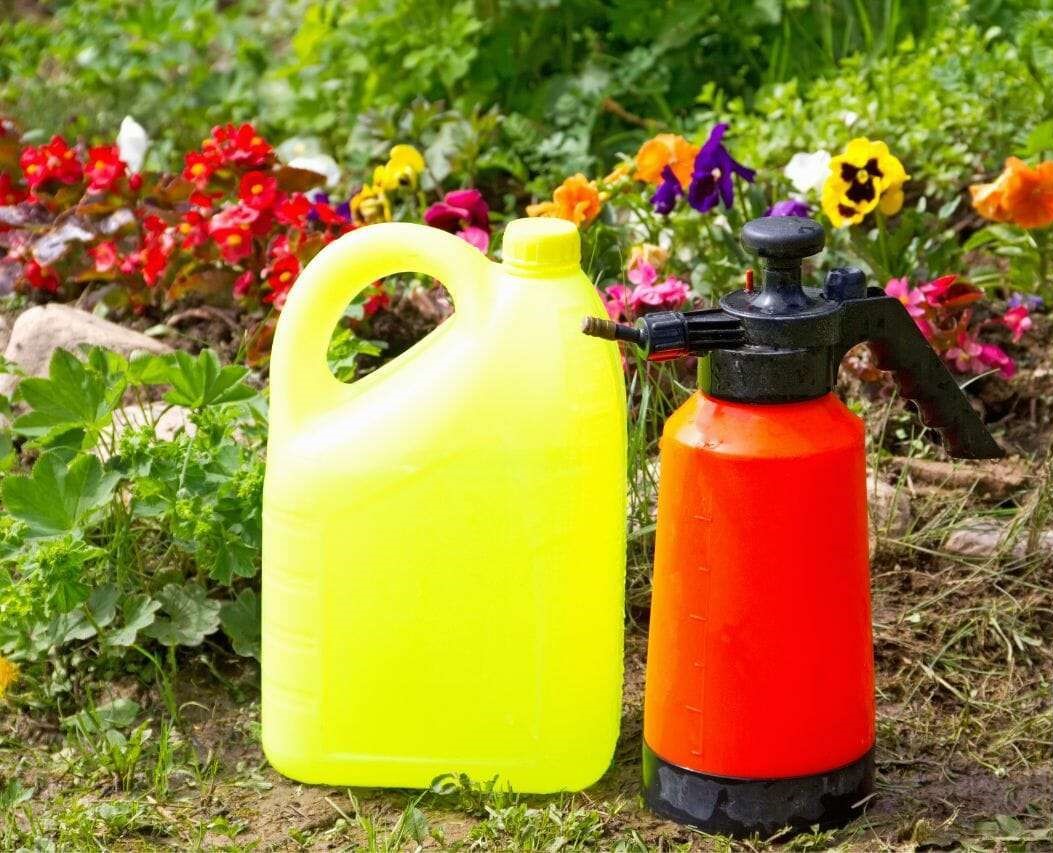Home>Types of Gardening>Ornamental Gardening>What Fertilizer To Use On Bougainvillea
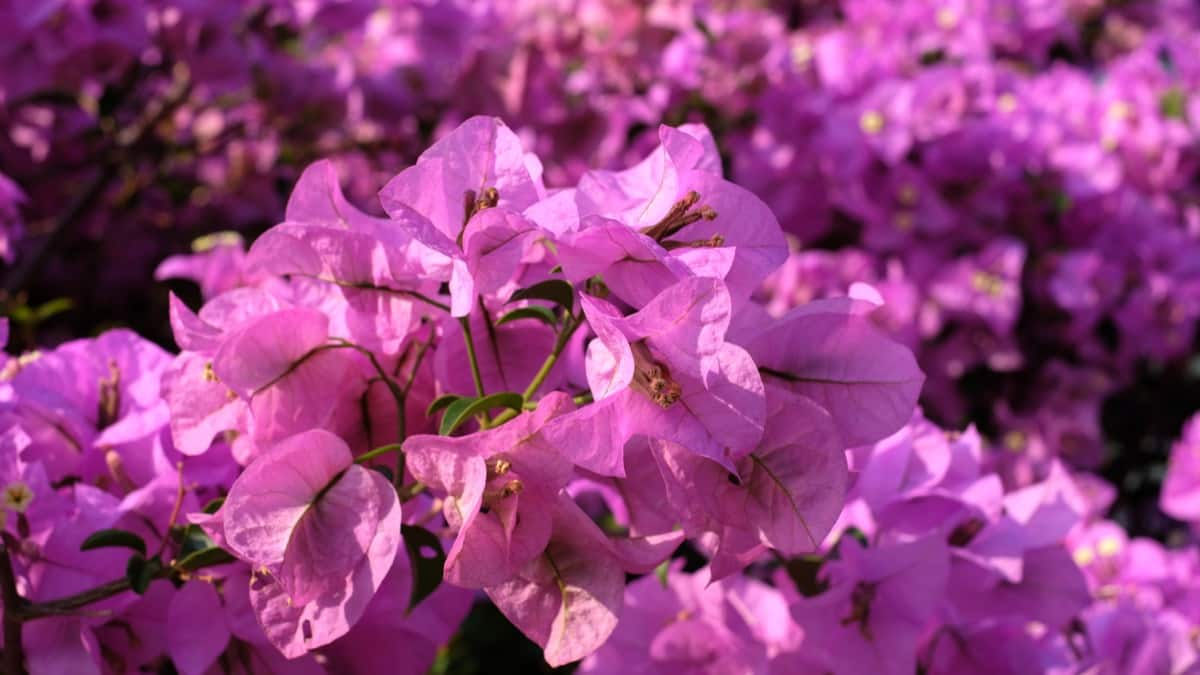

Ornamental Gardening
What Fertilizer To Use On Bougainvillea
Modified: January 22, 2024
Looking to grow beautiful bougainvillea? Discover the best fertilizer for ornamental gardening and enhance the growth and vibrant colors of your bougainvillea plants.
(Many of the links in this article redirect to a specific reviewed product. Your purchase of these products through affiliate links helps to generate commission for Chicagolandgardening.com, at no extra cost. Learn more)
Table of Contents
- Introduction
- Understanding Bougainvillea Plants
- Importance of Fertilizer for Bougainvillea
- Factors to Consider Before Choosing Fertilizer
- Types of Fertilizer Suitable for Bougainvillea
- Organic Fertilizers
- Inorganic Fertilizers
- Best Fertilizer Brands for Bougainvillea
- Tips for Applying Fertilizer on Bougainvillea
- Common Mistakes to Avoid When Fertilizing Bougainvillea
- Frequently Asked Questions (FAQs)
- Conclusion
Introduction
Welcome to the world of ornamental gardening, where beauty and nature come together to create stunning landscapes. One plant that often steals the spotlight with its vibrant colors and eye-catching blooms is the bougainvillea. This tropical beauty is a popular choice among garden enthusiasts for its resilience and ability to thrive in various climates.
If you’re considering adding a bougainvillea to your garden or already have one, you need to understand the importance of fertilizer. Fertilizing your bougainvillea is crucial for its growth, health, and overall beauty. But with so many fertilizer options available, how do you choose the right one?
In this article, we will delve into the world of bougainvillea fertilizers and guide you on selecting the best option for your plant. We will explore different types of fertilizers, provide recommendations for top brands, offer tips on application, and highlight common mistakes to avoid. So, whether you’re a beginner in ornamental gardening or an experienced green thumb looking to enhance your bougainvillea’s growth, this article is for you.
Before we dive into the specifics, let’s take a closer look at bougainvillea plants themselves, so we can better understand their unique needs and requirements.
Understanding Bougainvillea Plants
Bougainvillea plants are known for their vibrant and showy bracts, which are modified leaves that surround the small, inconspicuous flowers. These bracts come in a variety of colors, including shades of pink, purple, red, orange, and white, creating a stunning display of hues in the garden.
Native to South America, bougainvillea plants thrive in warm and tropical climates. They prefer full sunlight and well-draining soil, making them an excellent choice for gardens in regions with mild winters and hot summers. Bougainvilleas are also incredibly resilient and can withstand drought conditions once established.
When it comes to growth habits, bougainvillea plants can vary, with some varieties growing as small shrubs and others as sprawling vines that can reach heights of 20 feet or more. Pruning is often necessary to maintain the desired shape and size of the plant and to encourage vigorous blooming.
While bougainvillea plants are relatively low-maintenance, they do have specific nutritional needs to support their growth and prolific blooming. This is where fertilizer plays a vital role.
Fertilizing bougainvilleas provides them with essential nutrients, such as nitrogen, phosphorus, and potassium, which are crucial for healthy foliage and abundant flowering. These nutrients help promote strong root development, vigorous growth, and vibrant bract colors.
Understanding the unique needs of bougainvillea plants and providing them with the right balance of nutrients through proper fertilization will ensure that your plant thrives and produces a stunning display of colorful blooms.
Importance of Fertilizer for Bougainvillea
Fertilizer is a crucial element in the care and maintenance of bougainvillea plants. While these plants are known for their resilience, they still require a regular supply of nutrients to sustain their growth and blooming potential. Here are some key reasons why fertilizer is important for bougainvillea:
- Promotes Healthy Growth: Bougainvillea plants need a balanced supply of nutrients for optimal growth. Fertilizer provides essential elements such as nitrogen, phosphorus, and potassium which help in the development of strong stems, lush foliage, and the formation of new shoots.
- Enhances Flowering: Bougainvillea plants are valued for their vibrant and profuse blooms. Fertilizer plays a crucial role in ensuring abundant and long-lasting flowering. The right balance of nutrients promotes the production of more flowers and intensifies their colors, creating a stunning display in your garden or landscape.
- Strengthens Root System: Proper fertilization encourages healthy root development in bougainvillea plants. Strong roots allow the plant to efficiently absorb water and nutrients from the soil, enhancing its overall resilience and ability to withstand environmental stressors.
- Counters Nutrient Depletion: Over time, the nutrients in the soil can become depleted, especially in containers or heavily cultivated areas. Fertilizing bougainvilleas replenishes the essential nutrients, ensuring that the plant has everything it needs to thrive.
- Improves Plant Resilience: Well-fed bougainvillea plants are more resilient to diseases, pests, and adverse weather conditions. Fertilizer strengthens their immune system, making them better equipped to fend off potential threats and recover faster from any damage or stress.
- Provides Essential Micronutrients: In addition to the primary nutrients (N, P, K), bougainvilleas require trace elements such as iron, magnesium, and zinc. These micronutrients are vital for proper plant growth and metabolism. Fertilizers specifically formulated for bougainvilleas often include these micronutrients to ensure their well-being.
By understanding the importance of fertilizer for bougainvillea plants, you can take the necessary steps to provide them with the nutrients they need for healthy growth, abundant flowering, and overall vitality.
Factors to Consider Before Choosing Fertilizer
When it comes to choosing the right fertilizer for your bougainvillea plants, there are several factors to consider. By taking these factors into account, you can make an informed decision and provide your plants with the best possible nourishment. Here are some key factors to consider before selecting a fertilizer:
- Nutrient Ratios: Different fertilizers contain varying ratios of nitrogen (N), phosphorus (P), and potassium (K). These three nutrients are often referred to as NPK and play different roles in plant growth and development. Before choosing a fertilizer, consider the specific needs of your bougainvillea plants. For example, a higher phosphorus content is beneficial for flowering, while more nitrogen promotes vigorous foliage growth.
- Slow-Release or Quick-Release: Fertilizers can be classified as either slow-release or quick-release. Slow-release fertilizers gradually release nutrients over time, providing a steady and sustained supply to the plants. Quick-release fertilizers, on the other hand, release nutrients immediately but require more frequent applications. Consider your preferred approach and the convenience factor when deciding which type of fertilizer to use for your bougainvillea.
- Formulation Type: Fertilizers come in different formulations, such as granular, liquid, or soluble powder. Granular fertilizers are easy to apply and provide a slow-release of nutrients. Liquid and soluble powder fertilizers offer faster absorption but may require more frequent application. Consider the application method that suits your gardening style and the specific needs of your bougainvillea plants.
- pH Compatibility: Bougainvillea plants prefer slightly acidic to neutral soil pH. Before selecting a fertilizer, ensure that its pH level aligns with the optimal pH range for your plants. Some fertilizers also contain additives that can help adjust the pH, which can be beneficial if your soil is too alkaline.
- Additional Ingredients: Some fertilizers are enriched with additional ingredients or additives that provide specific benefits. For example, fertilizers may contain micronutrients like iron, magnesium, or zinc, which are essential for plant growth. Consider the specific requirements of your bougainvillea plants and look for fertilizers that meet those needs.
By considering these factors, you can narrow down your options and choose a fertilizer that will effectively nourish your bougainvillea plants. Remember to always read the instructions on the fertilizer packaging and follow the recommended application rates to avoid over- or under-fertilizing.
Types of Fertilizer Suitable for Bougainvillea
When it comes to fertilizing your bougainvillea plants, there are two main types of fertilizers to consider: organic and inorganic. Each type has its own advantages and considerations. Let’s explore these types in more detail:
- Organic Fertilizers: Organic fertilizers are derived from natural sources, such as compost, manure, and plant-based materials. They are rich in organic matter and provide a slow-release of nutrients to the plants. Organic fertilizers improve soil structure, promote microbial activity, and enhance overall soil health. They are generally considered more environmentally friendly and sustainable. Examples of organic fertilizers suitable for bougainvillea include well-aged compost, worm castings, and fish emulsion.
- Inorganic Fertilizers: Inorganic fertilizers, also known as synthetic or chemical fertilizers, are manufactured and formulated with specific nutrient ratios. They provide a quick-release of nutrients, making them readily available to the plants. Inorganic fertilizers offer precise control over nutrient ratios and are often enriched with micronutrients. They are convenient to use and provide immediate results. Inorganic fertilizers suitable for bougainvillea typically have a higher phosphorus content to promote flowering. Examples include balanced NPK fertilizers (such as 10-10-10 or 14-14-14) or bloom-boosting fertilizers with higher phosphorus (such as 5-10-5).
Both organic and inorganic fertilizers can be used effectively for bougainvillea plants. The choice between the two depends on personal preference, availability, and specific gardening goals. Some gardeners prefer organic fertilizers for their sustainable and environmentally friendly nature, while others opt for the convenience and immediate effect of inorganic fertilizers.
Regardless of the type of fertilizer you choose, it’s important to follow the application instructions on the packaging and avoid over-fertilization, as this can lead to nutrient imbalances or damage to the plant. Strike a balance between providing adequate nutrition and preventing excessive nutrient buildup in the soil.
In the next section, we will explore some popular fertilizer brands that are known for their effectiveness in nourishing bougainvillea plants.
Organic Fertilizers
Organic fertilizers are a popular choice among gardeners who prefer a natural and sustainable approach to plant nutrition. These fertilizers are derived from living organisms or natural substances and provide a slow-release of nutrients to plants, including bougainvilleas. Here are some common types of organic fertilizers suitable for bougainvillea:
- Compost: Compost is a nutrient-rich organic material produced by the decomposition of organic matter, such as kitchen scraps, yard waste, and leaves. It not only provides essential nutrients but also improves soil structure, moisture retention, and microbial activity. Apply well-aged compost around the base of your bougainvillea plants and gently work it into the top layer of soil.
- Manure: Animal manure, such as cow, horse, or chicken manure, is another organic fertilizer option. It is rich in nutrients and helps improve soil fertility. However, it should be aged or composted before use to avoid burning the plants with excessive nitrogen. Apply manure sparingly and mix it into the soil around the plants.
- Worm Castings: Worm castings are a nutrient-dense form of organic matter produced by earthworms. They contain beneficial microbes and a balanced blend of nutrients that promote healthy plant growth. Apply worm castings around the base of your bougainvillea plants as a top dressing, avoiding direct contact with the stems.
- Fish Emulsion: Fish emulsion is a liquid organic fertilizer made from fish waste. It is a quick-release fertilizer that provides an immediate nutrient boost to the plants. Fish emulsion is rich in nitrogen, which promotes lush foliage growth. Dilute the fish emulsion according to the package instructions and apply it to the soil around your bougainvillea plants every few weeks during the growing season.
- Seaweed Extract: Seaweed extract, derived from seaweed or kelp, is a natural and nutrient-rich fertilizer. It contains a wide range of plant nutrients, trace minerals, and growth-promoting compounds. Seaweed extract can enhance the overall health and resilience of bougainvillea plants. Dilute the seaweed extract according to the package instructions and apply it as a foliar spray or a root drench.
Organic fertilizers not only provide essential nutrients to bougainvillea plants but also improve soil health and promote a balanced ecosystem in your garden. They are generally safe to use, reduce the risk of nutrient leaching, and contribute to the long-term sustainability of your gardening practices.
Before using any organic fertilizer, it’s important to read the instructions carefully and apply it according to the recommended rates. Additionally, consider supplementing organic fertilizers with occasional applications of inorganic fertilizers to ensure a comprehensive nutrient profile for your bougainvillea plants.
Inorganic Fertilizers
Inorganic fertilizers, also known as synthetic or chemical fertilizers, are formulated to provide specific nutrients to plants quickly. While they may not be as natural as organic fertilizers, they play a significant role in providing essential nutrition to bougainvillea plants. Here are some common types of inorganic fertilizers suitable for bougainvillea:
- Balanced NPK Fertilizers: Balanced NPK fertilizers contain a similar ratio of nitrogen (N), phosphorus (P), and potassium (K), such as 10-10-10 or 14-14-14. These fertilizers provide a well-rounded nutrient profile for overall plant growth. They are suitable for bougainvilleas during the vegetative phase when foliage development is essential.
- Bloom-Boosting Fertilizers: Bloom-boosting fertilizers typically have higher phosphorus (P) content compared to nitrogen (N) and potassium (K). Phosphorus promotes flower formation and blooming. Look for fertilizers with a ratio of 5-10-5 or similar that specifically mention promoting flowering or blooming. Use these fertilizers during the blooming phase to enhance the production of vibrant flower bracts.
- Controlled-Release Fertilizers: Controlled-release fertilizers, also known as time-release or slow-release fertilizers, provide a gradual release of nutrients over an extended period. These fertilizers come in granular form with a polymer coating that determines the release rate. They are convenient for long-term plant nourishment, reducing the need for frequent applications. Follow the manufacturer’s instructions for proper usage.
- Foliar Fertilizers: Foliar fertilizers are designed to be sprayed directly onto the leaves of the plants. They are quickly absorbed by the foliage, providing an immediate nutrient boost. Foliar fertilizers are useful when there is a need to address nutrient deficiencies or when the plant’s root system cannot efficiently absorb nutrients from the soil. Follow the dilution instructions and spray the foliage evenly, avoiding direct sunlight or extreme temperatures.
- Micronutrient Fertilizers: Micronutrient fertilizers contain trace elements that might be deficient in the soil. These elements include iron (Fe), magnesium (Mg), zinc (Zn), and others. They help prevent nutrient deficiencies and promote healthy growth. Look for fertilizers that specifically mention micronutrients in their formulation. Apply micronutrient fertilizers according to the instructions to avoid over-application.
Inorganic fertilizers are readily available and provide a precise balance of nutrients for your bougainvillea plants. They ensure a quick release of essential elements to support their growth, blooming, and overall health. When using inorganic fertilizers, it is crucial to follow the manufacturer’s instructions regarding dosage and frequency to avoid over-fertilization, which can lead to nutrient imbalances or damage to the plants.
Consider incorporating both inorganic and organic fertilizers into your bougainvillea care routine to provide a well-rounded nutrient profile and maximize the plants’ potential.
Best Fertilizer Brands for Bougainvillea
When it comes to choosing the best fertilizer for your bougainvillea plants, several reputable brands offer specialized formulas to support their growth, flowering, and overall health. Here are some top fertilizer brands that are well-known for their effectiveness in nourishing bougainvillea:
- Jobe’s Organics: Jobe’s Organics offers a range of organic fertilizers formulated specifically for various types of plants, including bougainvillea. Their products are derived from natural ingredients and enriched with beneficial microorganisms to enhance soil health. Jobe’s Organics Biozome® technology ensures the slow release of nutrients for long-lasting results.
- Miracle-Gro: Miracle-Gro is a trusted name in the gardening industry, offering a wide range of fertilizers for different plant needs. Their Water Soluble Bloom Booster Flower Food is a popular choice for bougainvillea. This inorganic fertilizer is rich in phosphorus and helps stimulate vibrant blooms. It is conveniently mixed with water and applied through watering cans or garden sprayers.
- Osmocote: Osmocote is well-known for its controlled-release fertilizers, delivering nutrients to plants slowly over time. Their Flower & Vegetable Smart-Release Plant Food contains a balanced nutrient profile suitable for various flowering plants, including bougainvillea. The controlled-release formula ensures nutrients are released gradually for optimal plant growth and blooming.
- Dr. Earth: Dr. Earth offers organic fertilizers made from premium ingredients, including fish bone meal, feather meal, and kelp meal. Their Organic Bougainvillea Fertilizer is specifically formulated to promote healthy growth and vibrant blooms. It is enriched with beneficial soil microbes and mycorrhizae to enhance nutrient uptake and overall plant vitality.
- Scotts: Scotts is a renowned brand for both organic and inorganic fertilizers. For bougainvillea, their Osmocote Plus Outdoor & Indoor Smart-Release Plant Food is recommended. It provides a balanced mix of essential nutrients and micronutrients that support healthy bougainvillea growth and stunning floral displays. The controlled-release formula ensures nutrients are released gradually for sustained nourishment.
These brands are known for their quality, effectiveness, and reliability in providing the necessary nutrients to bougainvillea plants. However, it’s important to note that specific fertilizer requirements may vary based on the individual needs of your plants and the characteristics of your soil. Consider conducting a soil test and consulting with local gardening experts for personalized recommendations.
Remember to carefully follow the instructions provided by the fertilizer brand regarding usage, dosage, and application frequency. Applying the right fertilizer and using it correctly will help ensure healthy, vibrant, and thriving bougainvillea plants in your garden.
Tips for Applying Fertilizer on Bougainvillea
When it comes to fertilizing your bougainvillea plants, following the correct application techniques is key to maximizing their growth, flowering, and overall health. Here are some essential tips to keep in mind when applying fertilizer to your bougainvillea:
- Timing: Apply fertilizer to bougainvillea plants during the active growing season, typically from early spring to late summer. This is when the plants have a higher demand for nutrients to support their growth and blooming.
- Watering: Before applying fertilizer, thoroughly water the soil around your bougainvillea plants. Moist soil helps ensure proper nutrient absorption and prevents potential root burn when using inorganic fertilizers.
- Proper Dosage: Follow the recommended dosage instructions provided by the fertilizer manufacturer. Overfertilizing can lead to nutrient imbalances, potential toxicity, or damage to the plant. Remember, it is better to under-fertilize than to over-fertilize.
- Even Distribution: When applying granular fertilizer, spread it evenly around the base of the plant, extending slightly beyond the drip line. Avoid direct contact of fertilizer with the stems or leaves, as it may cause burn or damage.
- Application Frequency: Determine the recommended frequency of fertilizer application based on the type of fertilizer used. Some slow-release fertilizers require less frequent applications, while quick-release fertilizers may need more frequent treatments. Adjust the frequency accordingly and monitor the plant’s response to ensure you are providing optimal nutrition.
- Foliar Application: As an additional measure, consider applying foliar fertilizer sprays. Dilute the fertilizers according to the instructions provided by the manufacturer and spray them onto the foliage, ensuring coverage on both the tops and undersides of the leaves. This method provides a direct nutrient boost and can help address any nutrient deficiencies.
- Watering After Application: After applying fertilizer, thoroughly water the soil around the plants. This helps in distributing the nutrients to the root zone and prevents the risk of fertilizer burn. Adequate watering also assists in flushing excess salts that may accumulate due to fertilizer application.
- Observation and Adjustments: Monitor the growth and appearance of your bougainvillea plants after fertilization. Look for signs of nutrient deficiencies or excesses, such as yellowing leaves or stunted growth. Adjust the fertilizer application as needed, considering factors such as weather conditions, plant health, and individual plant requirements.
By following these tips and establishing a consistent fertilization routine, you can ensure that your bougainvillea plants receive the proper nutrition they need to thrive, resulting in vibrant blooms and healthy growth.
Common Mistakes to Avoid When Fertilizing Bougainvillea
Fertilizing bougainvillea plants is essential for their growth and blooming success. However, certain mistakes can hamper their health and overall performance. To ensure the best results, be mindful of the following common mistakes when fertilizing your bougainvillea:
- Over-Fertilization: Applying too much fertilizer can lead to nutrient imbalances, root burn, and even damage to the plants. It’s crucial to follow the recommended dosage instructions provided by the fertilizer manufacturer. Remember that bougainvilleas, while relatively hardy, still require moderation when it comes to nutrient application.
- Improper Timing: Fertilizing at the wrong time can be ineffective or even detrimental to your bougainvillea plants. Avoid fertilizing during the dormant period or during extreme weather conditions. Instead, apply fertilizer during the active growing season when the plants have a higher demand for nutrients to support their growth and flowering.
- Using the Wrong Fertilizer: Different stages of bougainvillea growth require different nutrient ratios. Using a fertilizer with an imbalanced ratio, or one not specifically formulated for flowering plants, can result in poor blooming or excessive foliage growth. Ensure that you select a fertilizer with the appropriate nutrient composition for bougainvillea plants, considering phosphorus content for optimum flowering.
- Applying Fertilizer to Dry Soil: Fertilizing dry soil may result in inadequate nutrient absorption by the plants’ root system. Always water the soil thoroughly before applying fertilizer to ensure optimal absorption and prevent potential root burn from concentrated nutrients.
- Ignoring Soil pH: Bougainvilleas prefer slightly acidic to neutral soil pH. Neglecting soil pH levels can impact nutrient availability to the plants. Conduct a soil test to determine the pH of your soil and select a fertilizer that aligns with the optimal pH range for bougainvilleas. Adjusting the pH, if necessary, can be achieved through the use of soil amendments.
- Not Considering Environmental Factors: Factors such as rainfall, temperature, and sunlight can affect the nutrient requirements of bougainvillea plants. Adjust your fertilization schedule and dosage based on these environmental factors. For example, during periods of heavy rainfall, frequent watering, or extreme heat, plants may require more frequent or reduced fertilizer applications.
- Neglecting Observation and Adjustments: Regularly monitor the health and appearance of your bougainvillea plants after fertilization. Look for signs of nutrient deficiencies or excesses, such as yellowing leaves or stunted growth. Adjust the fertilizer application as needed to address these issues or to accommodate changes in plant growth and environmental conditions.
By avoiding these common mistakes and instead practicing proper fertilization techniques, you can ensure that your bougainvillea plants receive the right nutrients at the right time, promoting healthy growth, vibrant blooms, and overall plant vigor.
Frequently Asked Questions (FAQs)
Here are some commonly asked questions about fertilizing bougainvillea plants:
- How often should I fertilize my bougainvillea plants?
- Can I use any general-purpose fertilizer for my bougainvillea plants?
- Should I fertilize my newly planted bougainvillea?
- Can I use organic fertilizers exclusively for my bougainvillea plants?
- Can I fertilize my bougainvillea during the winter months?
- Is it possible to over-fertilize my bougainvillea plants?
- Can I use foliar fertilizers as the sole source of nutrition for my bougainvillea?
The frequency of fertilization depends on the type of fertilizer used. In general, applying fertilizer every 4-6 weeks during the active growing season is sufficient. However, always refer to the instructions provided by the specific fertilizer brand for the recommended frequency.
It is recommended to use a fertilizer specifically formulated for bougainvillea. While general-purpose fertilizers can provide some nutrients, they may not have the ideal nutrient ratios for optimal growth and flowering of bougainvillea plants.
It is generally advised to wait a few months after planting before fertilizing newly established bougainvillea plants. During this time, focus on ensuring proper watering and root establishment. Once the plants have become more established, you can start a regular fertilization regime.
Yes, organic fertilizers can provide adequate nutrition for bougainvillea plants. However, it is recommended to supplement with occasional applications of inorganic fertilizers to ensure a comprehensive nutrient profile and address any potential deficiencies.
During the winter months, bougainvillea plants enter a dormant period, and their nutrient requirements decrease. It is generally not necessary to fertilize them during this time. Resume fertilization in early spring when the plants begin to actively grow again.
Yes, over-fertilizing bougainvillea plants can lead to nutrient imbalances, root burn, and other issues. Follow the recommended dosage instructions provided by the fertilizer manufacturer and avoid applying more fertilizer than necessary.
Foliar fertilizers can provide a quick nutrient boost, but they should not be the sole source of nutrition for bougainvillea plants. It is essential to also apply fertilizers to the soil to ensure a steady supply of nutrients for sustained plant growth and health.
Remember that the specific needs of your bougainvillea plants may vary based on factors such as soil conditions, climate, and cultivar. It’s always a good idea to consult with local gardening experts or extension services for personalized advice.
Conclusion
Fertilizing your bougainvillea plants is a vital aspect of caring for these stunning ornamental treasures. By providing the right nutrients at the right time, you can promote healthy growth, vibrant blooms, and overall plant vitality. Whether you choose organic or inorganic fertilizers, understanding the specific needs of your bougainvillea plants is crucial for successful fertilization.
Take into consideration factors such as nutrient ratios, application timing, proper dosage, and environmental conditions when selecting and applying fertilizer. Avoid common mistakes such as over-fertilization, incorrect timing, and neglecting soil pH. By following proper techniques, you can effectively nurture your bougainvillea and prevent nutrient deficiencies or excesses.
Consider the reputable fertilizer brands discussed in this article, which are known for their effectiveness in supporting the growth and blooming of bougainvillea plants. Remember to carefully read and follow the instructions provided by the manufacturers to ensure optimal results.
Keep in mind that bougainvillea plants are resilient, but every plant has its own unique requirements. Monitoring the health and appearance of your plants, making adjustments as needed, and seeking guidance from local gardening experts will help you achieve the best results.
By incorporating the tips and knowledge shared in this article, you can confidently fertilize your bougainvillea plants and create a vibrant and flourishing garden that showcases the true beauty of these remarkable ornamental wonders.
